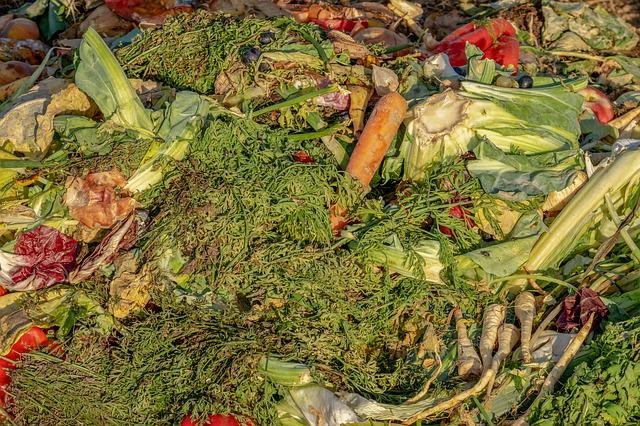Everyone at some time is looking for Tips For Reducing Food Waste inside the kitchen. When it comes to reducing food waste, the first step is to understand what it is. Food waste is defined as any food that is safe to eat but ends up being thrown away. This can be anything from uneaten leftovers to spoiled produce.
Food waste is a problem
Food waste is a problem that plagues households and businesses alike. The average Indian family throws away 25% of the food they purchase each year, totaling over a thousand rupees in wasted groceries annually. That’s not even taking into account the environmental cost of all that wasted food.
Tips For Reducing Food Waste
Fortunately, there are many easy ways to reduce food waste in your own kitchen. Here are 7 tips to get you started:
1. Plan your meal
Plan your meals ahead of time and make a grocery list accordingly. This will help you avoid buying more food than you need. When it comes to reducing food waste in your kitchen, one of the smartest things you can do is shop smarter. Here are a few tips to help you get started:
- Make a list before you go grocery shopping and stick to it. This will help you avoid buying items that you don’t need and ultimately end up wasting.
- Take inventory of what you have on hand before heading to the store. This way, you can plan your meals around what you already have and reduce the likelihood of letting food go bad.
2. Store food properly
When it comes to reducing food waste, one of the most important things you can do is store your food properly. Here are a few tips to help you keep your food fresher for longer:
- Store fruits and vegetables in the fridge as soon as you get them home from the grocery store. This will help to keep them fresh and prevent them from going bad too quickly.
- Make sure to wrap meat and seafood tightly before storing them in the fridge or freezer. This will help to keep them fresh and prevent freezer burn.
- When storing leftovers, make sure to put them in airtight containers so they don’t dry out or go bad quickly. And be sure to label everything with the date so you know when it needs to be eaten.

3. Use leftovers
You can also get creative with your leftovers, using them in new and interesting recipes instead of just throwing them out. There are many different ways to do this, and the best method will vary depending on the type of food you have leftover. For example, if you have cooked meat, you can shred it and add it to a soup or stew. If you have leftover vegetables, you could chop them up and add them to a stir-fry. And if you have leftover rice or pasta, you could turn it into a casserole or fried rice dish.
Another great way to make use of leftovers is to freeze them. This way, they’ll be available for quick and easy meals later on. Soups, stews, casseroles, and cooked meats can all be frozen and then reheated when you need them.
4. Donate extra food
When you have extra food, whether it’s from a party or cooking too much, don’t let it go to waste. There are many ways you can donate extra food so that others can enjoy it.
One way to donate extra food is to bring it to a local shelter or soup kitchen. They will be able to use the food to feed people in need. If you have perishable items, you can also check with your local food bank to see if they are in need of donations.
Another way to donate extra food is to share it with your neighbors. If you have extras of something they may need or want, let them know! This is a great way to build community and reduce waste at the same time.
5. Educate others
One way to help reduce food waste in your kitchen is to educate others about the issue. Talk to your family and friends about the importance of reducing food waste, and share tips on how to do it. You can also host or attend events that focus on reducing food waste. At these events, you can learn more about the issue and how to make a difference.
6. Be mindful of expiration dates
One of the best ways to reduce food waste is to be mindful of expiration dates. This may seem like an obvious tip, but it’s one that is often overlooked. Expiration dates are there for a reason and following them can help you avoid wasting food.
When grocery shopping, try to buy items that have a longer shelf life. This will give you more time to use them up before they expire. And when you do get items with shorter shelf lives, make sure to use them up first. A good way to do this is to put expired items at the front of your fridge so you remember to use them up.
If you find that you’re regularly throwing out food because it has gone bad, take a closer look at your expiration dates and see if there’s anything you can do to change your habits.
7. Compost
A combination of substances called compost is used to enrich and enhance the soil. It is frequently made by recycling organic materials and decaying plant and food waste. This is a great way to reduce the amount of waste that goes into the landfill, and it’s also good for the environment. Here are some tips for composting:
- Find a place to keep your compost. If you have a backyard, you can keep your compost in a bin or pile. If you don’t have a backyard, there are many indoor composting options available.
- Collect your food scraps. You can compost all kinds of food scraps, including fruits and vegetables, coffee grounds, and eggshells.
- Add some green materials to your compost. Green materials include things like grass clippings and leaves. These help to add nitrogen to the compost pile.
- Add some brown materials to your compost as well. These materials include things like wood chips, dry leaves, and paper.

Conclusion
When it comes to reducing food waste in your kitchen, there are a few key things to keep in mind. First, try to only buy what you know you will use. This means being mindful of your grocery list and not overbuying. Second, get creative with your leftovers. If you have extra food that you know you won’t be able to finish, try repurposing it into a new dish or freezing it for later. Lastly, don’t be afraid to compost! Composting is a great way to reduce food waste and can even help your garden grow.
By taking a few simple steps, you can make a big difference in reducing your food waste. Not only will this save you money, but it will also help reduce the amount of perfectly good food that ends up in landfills. Good Luck..!!







